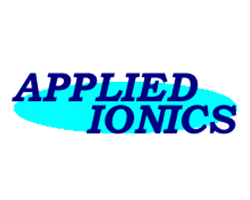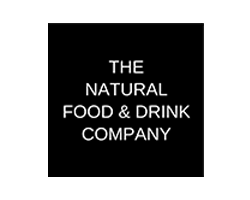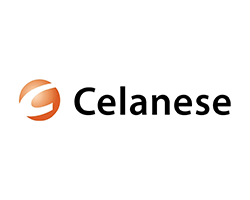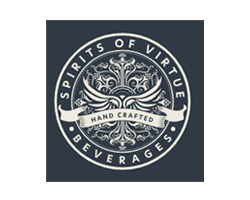Industrial & Food Grade Bag Filters
Replacement bag filters for industrial, chemical, water, sidestream, food & beverage applications
PoreFiltration offers a comprehensive range of replacement bag filters suitable for industrial, water, food, and beverage applications. Our filter bags deliver exceptional process efficiency, ensuring high flow rates and compatibility with a wide range of chemicals used in liquid filtration processes.
Whether you're setting up a new filtration system or enhancing an existing one, we offer polypropylene felt, polyester felt, and nylon mesh options, each featuring a choice of polypropylene collar, polyester collar, or stainless steel ring allowing retrofitting into any existing bag housing. Our bag filters are available in both industrial and food-grades in a comprehensive range of removal ratings from 0.5 to 1000 microns, standard lengths (Sizes 1, 2, 3, & 4) and bag diameters (7" & 4"). All our bag filters are supplied silicone-free. Additionally, we accommodate custom requests for tailored filter bags.
All replacement bag filters come in identical dimensions to your current filter bags, ensuring effortless replacement without sacrificing performance.
Needlefelt Bag Filters
Available in a number of non-woven felts - PP, PE, Nylon, Nomex and PTFE. Micron ratings from 1 to 200 microns
Custom Bag Filters
View the options that we can offer and tell us about the specific bag that you require
Frequently Asked Questions
Needlefelt filter bags are made from nonwoven synthetic fibers (such as polyester or polypropylene) that are mechanically entangled to create a depth filtration structure. These bags provide depth filtration, meaning they capture particles throughout the media thickness. They are best for applications requiring high dirt-holding capacity, such as:
Mesh filter bags are woven materials, typically made from nylon or polyester, that offer surface filtration by trapping particles on the material’s surface. They are best for applications where precise particle size retention is needed, such as:
- Bulk solids separation
- Fine particle classification
- Viscous liquids with minimal particulate load
- Pharmaceutical and high-purity applications
The best choice depends on the filtration goal: needlefelt bags are better for capturing a high volume of contaminants, while mesh bags are ideal for retaining specific particle sizes and offering easy cleaning/reusability.
Polypropylene, Polyester, Nylon, Nomex, Teflon
Selecting the right filter bag material depends on the substance being filtered, operating temperature, chemical compatibility, and filtration efficiency required. Common materials include polyester, polypropylene, nylon, and PTFE, each suited for different applications such as chemicals, food processing, or water treatment.
The replacement frequency depends on factors like the type of contaminants, flow rate, operating conditions, and differential pressure buildup. Regular monitoring of pressure drop and inspecting the filter bag for clogging or damage will help determine the optimal replacement interval.
The primary indicator of filter performance is pressure drop across the filter. A rising pressure differential suggests clogging and reduced efficiency. Visual inspections and scheduled maintenance also help ensure consistent performance. Always change bags out when they reach the changeout differential pressure specified by the manufacturer.
Bag filters are typically disposable items, but in certain industrial applications can be cleaned and their life extended. Some industrial systems use pulse jet cleaning, where compressed air pulses remove collected particles from the filter media, extending its lifespan. Other systems may use mechanical shaking or reverse air cleaning.
Proper installation involves ensuring a secure fit in the housing, checking for correct sealing to prevent bypass, and confirming that the system is operating at the right pressure and flow rate. Maintenance includes regular inspections, timely bag replacements, and keeping the housing and sealing surfaces clean.
Check the chemical compatibility of the filter media with the liquid or gas being filtered. Reference chemical resistance charts provided by manufacturers, and consider temperature and pH factors that could affect material integrity over the exposure time. Read our blog: Choosing The Right Filter Bag For Your Application for more information.
Lifespan varies based on application, contaminant load, temperature, and operating pressure. Some filter bags last only a few days in high-load environments, while others can last weeks or months in low-contaminant applications. Monitoring pressure drop and conducting periodic inspections will help optimize lifespan. However it is also worth noting that under sizing of bag filters will also cause frequent change out and short service life.
- Regularly monitor pressure drop and change bags before excessive clogging occurs.
- Use proper pre-filtration if necessary to extend bag life.
- Ensure a proper seal to prevent bypass.
- Store replacement bags in a clean, dry environment.
- Choose the right micron rating for your specific application needs.
Explore Related Articles
Watch our video on Bag Filters HERE
All our filter products are manufactured to the highest quality standards with certificates of conformity and validation guides that can be provided upon request.
- All filters used in the food & beverage markets are EU and FDA compliant for material in food contact. Additionally certain products are Halal or Kosher certified.
- Filters for use in healthcare or pharmaceutical applications meet the requirements of US FDA 21 and evaluated in accordance with USP Class VI plastics.
- Products provided for automotive use in paint systems are silicone free.
Talk to us today about your filtration requirements
-
Extensive product range
-
Best Price GUARANTEED!
-
Specialist support team with deep knowledge of liquid & gas applications
-
Reliable quality & delivery
Customers We Work With












.png?width=364&height=257&name=Untitled%20(1250%20x%201080%20px).png)

